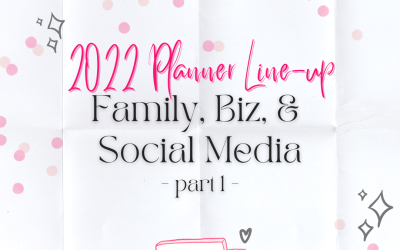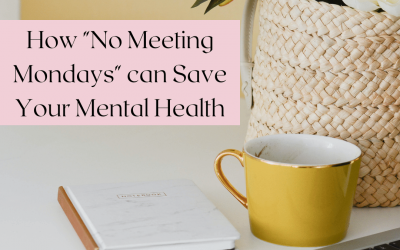My name is Bethany and I’m a recovering people-pleaser.
Growing up, my decisions were made for me, as they often are for children. When I got to pick my birthday restaurant, people would whisper their favorite places and the specialness of my day became a turmoil of stress, making sure everyone was happy with my choice.
Unfortunately, this learned behavior stayed with me until adulthood. My choices were born out of carefully weighed options and objectivity and predictable results. Like a computer.
Choose What You Want
The burden of pleasing everyone is heavy, and as young girl, I weighed out the consequences of who would be disappointed in my choices and chose the path that disappointed the least amount of people.
[pullquote]”Options can be taken away, while our core ability to choose (free will) cannot.” – Essentialism[/pullquote]
I failed to understand this: “Options can be taken away, while our core ability to choose (free will) cannot.” – Greg McKeown, Essentialism
When I was in my twenties, the realization struck me. Who the heck was I trying to please? Who even cared? Was someone going to be disappointed in me based on this choice? Would I be loved less?
The insanity of making every decision, down to the clothes that I wore, based on some expectation I’d placed on myself after leaving home had to stop.
“I had always known logically that I could choose not to ___________ but emotionally, it had never been an option.” – McKeown
There are times when considering the feelings and wishes of others comes into play. Marriage, for example, is a daily situation of compromise. However, being conscious of others and laying down your opinions for the sake of harmony are two separate things.
I see my children starting this same journey. One of them will have a choice and the other two will start whispering their desires. Or my oldest son will make a Monopoly transaction based on not hurting someone’s feelings.
When I choose my birthday restaurant now, it’s Olive Garden, and if someone doesn’t like it, they can eat a salad or make a pb&j when we get home.
You have Options
In the amazing book Essentialism, UK native McKeown describes a trip to America. He was internalizing his decision to continue law school, yet his real desire was to teach and write. In the good ol’ US of A, the passing comment of an executive he’d met with changed his whole life.
“If you decide to stay…”
If you decide to stay.
McKeown goes on to say that he “had always known logically that [he] could choose not to attend law school but emotionally, it had never been an option.”
You have options. I have options.
He left law school, moved to America, and pursued his love of writing and teaching.
Besides the moral calling of my God and Savior and the laws of the land, no one else needs to give me permission. There is no award in Heaven for the person who gave everyone else everything they wanted. By doing that, you rob yourself of the God-given gifts and talents He’s given to you.
[Tweet “If we make decisions by giving other people’s expectations a full weight, we remain stuck. #Essentialism”]
If we make decisions by giving other people’s expectations full weight, we remain stuck – a job that we hate, a relationship that is unhealthy, or find ourselves miserable and depressed. That’s not the best for your life.
Choose the best. Choose your best.
It’s Okay to Disappoint People
My former pastor is one of the wisest men I have ever known. Justin and I still use the advice from our pre-marital counseling sessions and in the first year of our marriage, arguments were always won with, “If I call Shan, what do you think he’ll say?” I think he may have received a couple of phone calls after the other person staunchly refused to back down.
In the hallway after a Wednesday night service, I heard the words that began the seismic shift in my thinking. I was sitting on one of the benches lining the walls waiting for my friends. There was a bit of tension and a small group of adults had gathered outside of the church offices.
From the context, I gathered that someone was mad about a decision Shan had made or something he had done, yet the leaders weren’t upset with him. In church world, someone is always causing a stink about something. Often times, over the nonessentials like, “The soda machine is out of diet Coke. I can’t praise Jesus until I have my caffeinated artificial sweetener.” True story.
Whatever the case, I remember the beginning of Shan’s words: “My God loves me, my wife loves me, and it doesn’t matter…” I assumed that the end of that sentence was “…it doesn’t matter what so-and-so thinks.”
Regardless, it was a beautiful representation of perspective that fell on thirsty ears. It also became my personal bridge from people-pleasing to accurately deciding if my decisions would hurt or negatively affect the people who truly matter.[pullquote]Get your copy of Essentialism: hardcover or ebook[/pullquote]
We are an opinionated society and the technology at our fingertips allows everyone with internet access the ability to bestow their thoughts on our lives. If we constantly live and act in the fear that someone somewhere will be disappointed, the only true shame will be that we didn’t live our lives fully.
To Protect My “Yes,” I Need an Army of “No’s”
The 80/20 rule applies in almost every aspect of life. 20% of the people do 80% of the work and a number of other variations to the expression. However, it begs a question. Are the 20% just really bad at saying no?
Oftentimes we’re burdened by the cause of the organization. We want our women’s church group to do well. We want a ladies’ Bible study. We want the Girl Scout fundraiser to make a lot of money. So we saddle our appointment calendars with events that don’t fulfill our purpose, but the purpose of someone else.
Where is our filter?
How do we decide, with all the wonderful things with which we are presented, the ones that we are fully equipped to do?
Nehemiah is an amazing example of this. In fact, when I read his words, I pulled out my trusty label maker and affixed the quote to my laptop. I had to split it into two pieces so I wouldn’t cover the internal camera. It sits at eye level so I will never forget.
“I’m doing a good work and I cannot come down” (see Neh 6:3)
The people were asking him to stop building the wall because they needed his help. They TRULY needed him. Yet he said no. He turned away the good to focus on the better.
Will someone die if we say no? Is there a life that hangs in the balance? Have I been so specially trained that I am literally the only person who can accomplish the task? Am I so wrapped up in my own self-importance that I can perform the job better than everyone else?
No. No. No. Maybe.
What is your “why”?
What is unique and special about your gifts and how will you protect them?
What amazing blessings are you losing out on because you said “yes” to the mundane? What relationships are you never going to experience because you said “yes” to the first person who asked?
“No” won’t kill you.
Write down what’s important to you. Decide your filter.
When someone asks you to participate in something, run it through the gamut. Here’s what I was taught to say – perhaps in a Beth Moore Bible study, I can’t remember who, but I remember the words:
“Thank you so much for thinking of me. I’m going to have to pass.”
No. Explanation. Required.
We tell people about our whole lives. We make excuses. Just say, “I have to pass.”
It’s hard at first, but it will become liberating!
The Recovering People-Pleaser Mantra
For the recovering people pleasers out there – this is our mantra:
It’s okay for me to choose what I want.
I have the freedom to disappoint people.
In order to protect my “yes,” I need an army of “no’s.”
And in the meantime, we’ll still give people precedent, treating others like we want to be treated, but we’ll choose to spend our time doing what truly matters and what falls in line with the purpose of our lives.




0 Comments